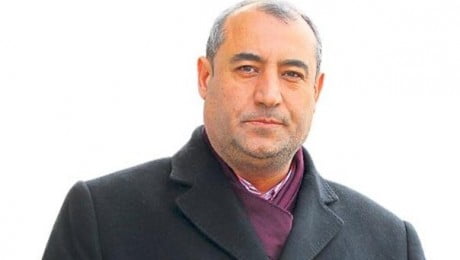Keyword: Turkey

Turkish press council condemns false reports on Gülen movement
The High Committee of the Press Council in Turkey, following an appeal by the lawyer of Islamic scholar Fethullah Gülen, has examined certain articles from the Sabah and Takvim dailies and condemned them for violating its basic principles of journalism.

Saudi scholar finds what he has been looking for in Gulen
The prominent Saudi scholar Salman Al-Ouda said : “From this day on, I will refer people from our world to you. Please let them see all these services because we have serious problems in our world. We have a radical Salafi line and an emerging secular one. But we need a moderate attitude which is, I believe, the Hizmet. Please do not neglect it and tell them about the Hizmet. It is of vital importance for us.”

More emphasis should be given to improving students’ functional skills
Tens of educators, bureaucrats and representatives of civil society organizations and private education foundations from Turkey and 15 other countries, have said the Turkish education system should not only focus on transferring information but also on improving students’ functional skills and capabilities.

Neither conservative nor democrat
Media campaigns, accusations and the prime minister’s statements about the leader of the movement are of unprecedented scale in Turkey. Filing records on sympathizers of the Gülen movement, removing them from public offices they happen to occupy, attacking its financial institutions; none of this has ever been seen in the past regarding Islamic movements.

What a shame, what a pity
The education bill is just a message to a specific audience. It turned out to be the first step in the destruction of the Hizmet movement [inspired by Turkish Islamic scholar Fethullah Gülen]. The new bill [on dershanes] is not limited to prep schools. It aims to almost “reestablish” the Ministry of Education [by reassigning thousands of officials].

Tunisia was able to make constitution because of concessions of all parties
The Hizmet movement “revives civil society in a modern state,” he says, as he emphasizes that the movement also adheres to the values of the Muslim world. “Having Hizmet is very important for the Turkish state. It will help the state to renew its values,” the Tunisian politician comments.

‘All religious groups and communities face great danger’
Religious sociologist Muhammet Çakmak is of the view that the logic of, “You are either with us or you are nothing,” threatens all religious groups and communities in Turkey. He also holds that this approach has no scholarly value or validity.

Abant Platform convenes to discuss problems of Turkish education system
Tens of educators, bureaucrats, civil society organizations and private education foundations from Turkey and 15 other countries have come together to discuss the problems of Turkish education system and to propose possible solutions to those problems at the Abant Platform’s 31st meeting that kicked off on Saturday in İstanbul.

How does the Hizmet movement fare with democracy?
Ruling elites of this country, unfortunately, have targeted different groups at different times. Thus, religious people, Kurds, Alevis, nationalists (ülkücüs), leftists, non-Muslim minorities and democratic intellectuals have been in the bull’s eye for attacks from these elites. The Hizmet movement has always been a member of this list of plagued groups.

Inspector candidate labeled ‘red’ by ministry confirms profiling reports
A candidate inspector for the Ministry of Finance who learned from recent media reports that he had been profiled by the ministry on the basis of his family background has confirmed that the information disclosed by the media matches his personal information.

Gov’t criticized for forcing scientific researcher to alter report
Claims by the former head of a scientific research agency who was dismissed a day after his public remarks that he was forced to make changes to a report that was part of an investigation into bugging devices found at the prime minister’s office have triggered a harsh reaction against the government.





















